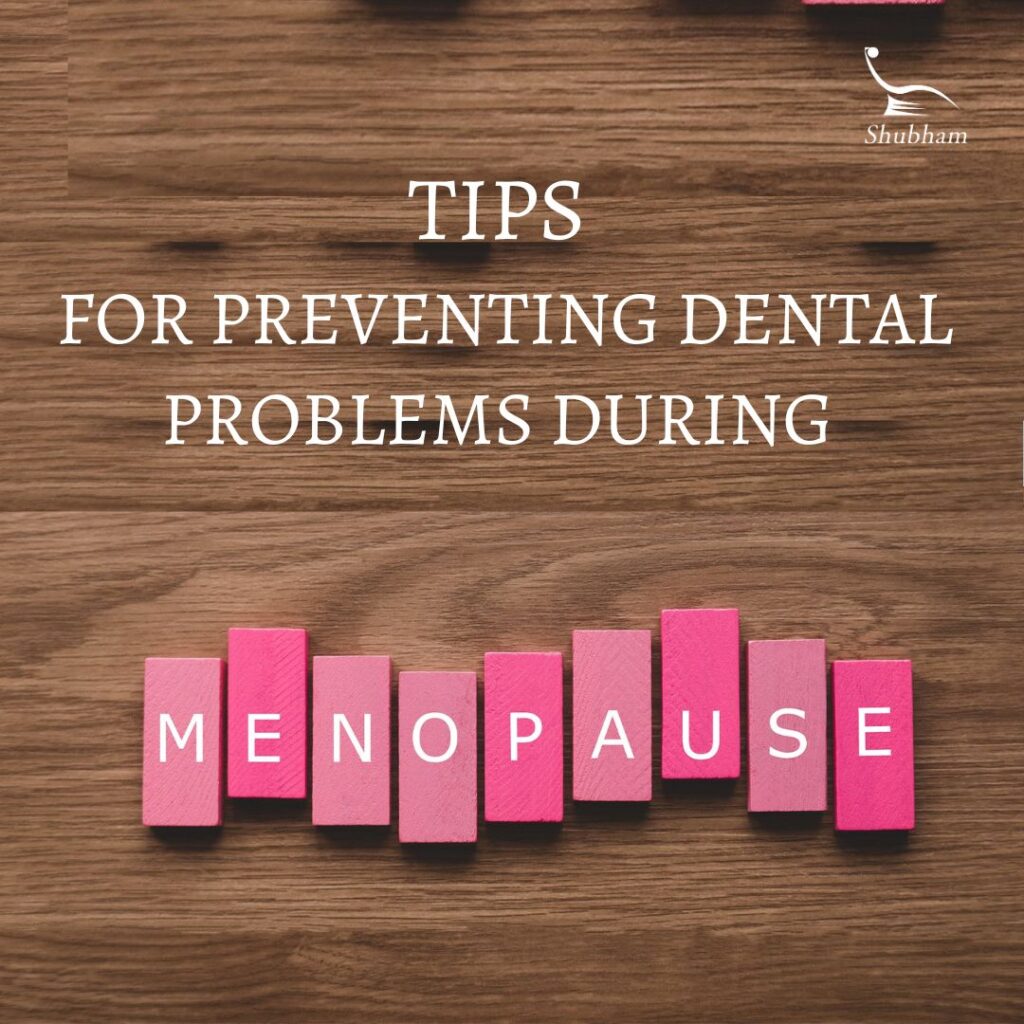Menopause means changes in your weight, sex drive, mood, and also your dental health.
Menopause, a significant phase of a woman’s life, marks the end of her reproductive years and the beginning of a new chapter.
Hot flushes, difficulty sleeping, and mood swings are common and widely-known symptoms you might expect to experience during menopause. While menopause brings about various physical and emotional changes, it also uniquely impacts oral health. Often overlooked or underestimated, the connection between menopause and oral health is a topic that deserves our attention and understanding.
Throughout this informative journey, we will explore how fluctuating hormones during menopause can lead to oral health changes, such as dry mouth, gum problems, and bone loss. Estrogen levels decrease, which can lead to a higher risk of dental problems.
This article aims to promote awareness and promote a positive dialogue about menopause and oral health. By equipping women with the necessary knowledge, we aspire to empower them to take control of their oral health journey and embrace the changes that menopause brings with confidence.
Menopause and oral health problems

Dry mouth: Dry mouth (xerostomia) is a common symptom during menopause. Menopause can lead to reduced salivary flow, resulting in a dry mouth and it creates an environment for bacteria to build up in the oral cavity. This can increase the risk of tooth decay, gum disease, and bad breath. To know more about bad breath remedies at hon
Burning mouth syndrome: Some women experience a burning or tingling sensation in their mouth during menopause. This can be accompanied by dry mouth, altered taste, and other discomfort.
Gum disease: Hormonal changes during menopause can increase the risk of gum disease, which can cause bleeding, swelling, and redness in the gums. Some women complain about teeth hypersensitivity also during menopause.
Tooth decay: A dry mouth, combined with changes in diet and hygiene habits, can increase the risk of tooth decay during menopause.
Bone loss: Menopause can cause a decrease in bone density, including the jawbone that supports teeth. This can lead to tooth loss or other oral health problems.
How to prevent dental problems during menopause?

There are several steps women can take to protect their teeth during this stage:
Maintain good oral hygiene: Brush your teeth at least twice a day using fluoride toothpaste and a soft-bristled toothbrush. Floss daily to remove plaque and food particles from between your teeth.
Visit your dentist regularly: Schedule regular dental check-ups and cleanings, ideally every six months. Your dentist can monitor your oral health, identify any potential issues, and provide appropriate treatments.
Pay attention to gum health: Be vigilant about your gum health, and report any signs of bleeding, swelling, or tenderness to your dentist.
Use fluoride products: Consider using a fluoride mouthwash or toothpaste to strengthen your tooth enamel and protect against tooth decay. To know more about fluoride toothpaste and its effects, read more
Stay hydrated: Drink plenty of water daily to keep your mouth moist. Sucking ice chips or chewing sugar-free gum can also help stimulate saliva production. Use an over-the-counter dry mouth spray or rinse to help reduce the dryness.
Manage menopausal symptoms: If you experience symptoms like hot flashes and night sweats, these can affect your sleep quality. Poor sleep can lead to a higher risk of dental problems due to decreased saliva flow. At night, sleeping with a humidifier on in your room can also make a difference.
Consult your healthcare provider to find appropriate ways to manage your symptoms and improve your sleep.
Consider hormone replacement therapy (HRT): Hormone replacement therapy may help alleviate menopausal symptoms and potentially improve oral health.
Eat a balanced diet: Proper nutrition is essential for maintaining overall health, including oral health. Consume a balanced diet rich in vitamins, minerals, and antioxidants. Get the right amount of calcium and vitamin D to reduce the risk of bone loss. Limit sugary snacks and beverages, as they can contribute to tooth decay. This will help in maintaining both menopause and dental health.
Avoid tobacco and alcohol: Smoking and excessive alcohol consumption can further worsen dry mouth and increase the risk of oral health problems.
Conclusion
So, whether you are a woman experiencing menopause or someone seeking insights for a loved one, you must have been enlightened about menopause and oral health. Together, we can help women embrace this transformative stage of life with grace while maintaining a radiant smile that reflects their inner strength and vitality.
Remember, it’s crucial to consult with your dentist and healthcare provider about your specific oral health concerns during menopause. They can provide personalized advice and guidance based on your individual needs so that you can lead a healthier and happier life.
Dear women, through the winds of menopause, we wish your smiles to remain ageless.

Good articles for women facing period of menopause. Good tips
Well done 👍👍
Really i appreciate you on this useful guidance and the topic you explained . As per my knowledge no Dentist has ever explained on this topi. Thank you Dr. Rinku Mittal for providing this useful guidance.
It’s very useful and interactive article…In india we are least keem about oral hygiene and menopause is not consider as extra Mile of the life…Good wishes
Thanks mam for your appreciation and good wishes.